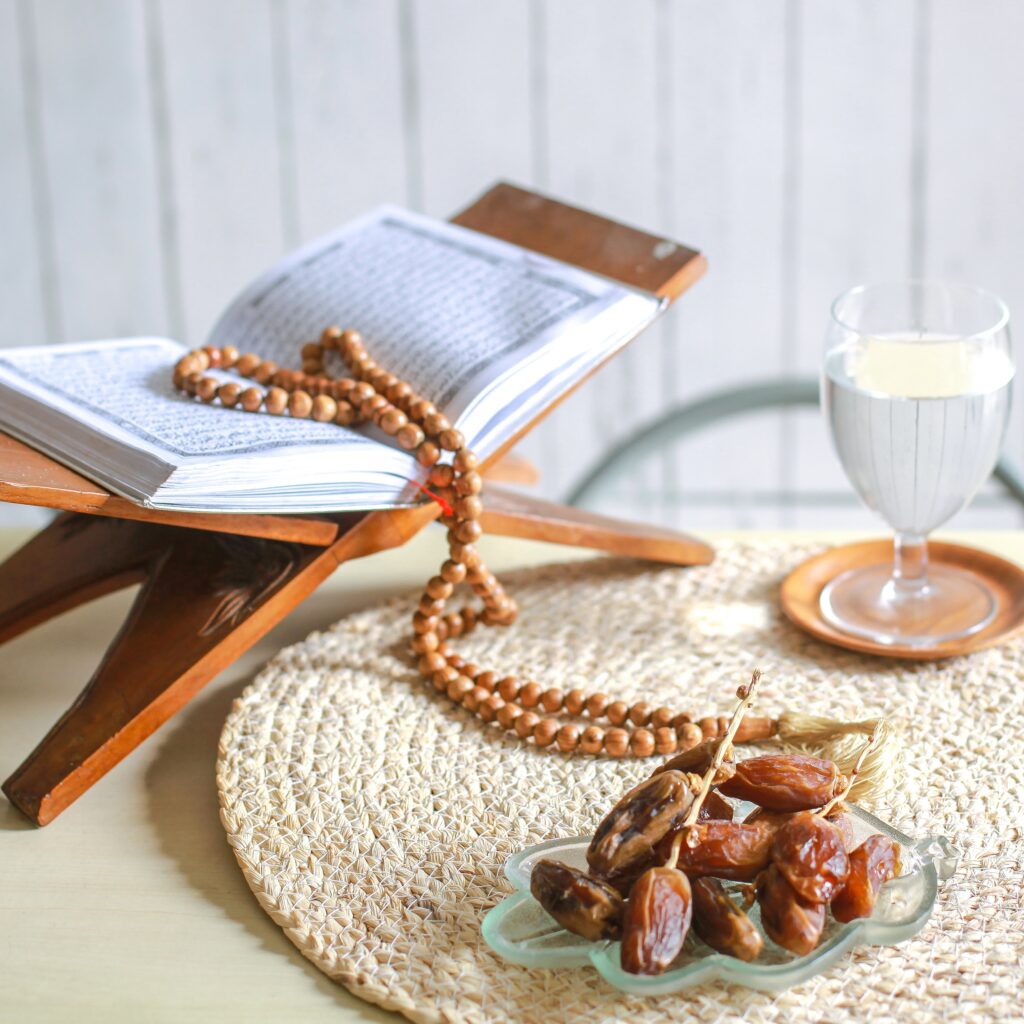Ramadan, the ninth month of the Islamic lunar calendar, is a time of fasting, reflection, prayer, and devotion for Muslims around the world. Observing Ramadan brings believers closer to Allah, as they dedicate themselves to worship and self-restraint. If you’re wondering how to spend Ramadan meaningfully, this guide offers ways to maximize the month’s blessings, foster spiritual growth, and increase acts of kindness.
Preparing for Ramadan
Preparation helps you enter Ramadan with focus and purpose. Here’s how to start:
- Set Your Intentions (Niyyah)
Begin by making sincere intentions for the month. Reflect on what you want to achieve spiritually, mentally, and personally. Whether it’s improving prayer habits, deepening Quranic knowledge, or building good deeds, having clear intentions will guide your efforts and keep you motivated. - Organize a Daily Schedule
Ramadan routines differ from typical schedules due to fasting and additional prayers. Use a planner or journal to outline your prayer times, Quran reading goals, and acts of kindness. Keeping an organized schedule helps you stay consistent with worship and personal goals throughout the month. - Minimize Distractions
Reduce time spent on social media, television, and other distractions. Simplifying your routine allows for more time in worship, reflection, and acts of compassion, helping you stay present in your spiritual journey during Ramadan.
How to Spend Ramadan with Worship and Reflection
One of the most crucial aspects of how to spend Ramadan is engaging in worship that strengthens your relationship with Allah. Here are the key practices to incorporate:
1. Fasting (Sawm)
Fasting from dawn to sunset is one of the primary obligations of Ramadan. Beyond abstaining from food and drink, fasting involves avoiding negative thoughts, words, and actions. Fasting teaches discipline, patience, and empathy, allowing you to develop gratitude for Allah’s blessings and focus on spirituality.
2. Increased Quran Recitation and Reflection
Known as the month of the Quran, Ramadan is the ideal time to read, understand, and reflect on its teachings. Set a goal to read the entire Quran or dedicate time daily to its study, contemplating the lessons and applying them to your life.
3. Prayers and Du’a (Supplication)
Strengthen your connection with Allah by increasing your prayers. In addition to the five daily prayers, try to perform additional prayers like Tarawih, which is recommended during Ramadan. Engage in regular du’a to seek forgiveness, guidance, and blessings, as it deepens your relationship with Allah and brings peace.
4. Performing Dhikr (Remembrance of Allah)
Engage in Dhikr by repeating phrases like SubhanAllah (Glory be to Allah), Alhamdulillah (All praise is due to Allah), and Allahu Akbar (Allah is the Greatest). This simple act maintains your awareness of Allah, calming your mind and keeping you spiritually engaged throughout the day.

Acts of Charity and Kindness During Ramadan
Charity, or sadaqah, is emphasized in Islam and carries special importance during Ramadan. Here’s how to make charity a central part of how to spend Ramadan:
- Contribute to Those in Need
Donate to charities, food banks, or families in need. Acts of charity are encouraged, whether financial or through giving time to help others. Sharing iftar or providing meals for those who are less fortunate reflects the compassion of the Ramadan spirit. - Practice Kindness and Compassion
Small acts of kindness go a long way in Ramadan. Help family members, volunteer in the community, or simply reach out to friends to offer support. Engaging in these acts of compassion strengthens your bonds with others. - Paying Zakat al-Fitr
Before Eid al-Fitr, every Muslim who is financially able must pay Zakat al-Fitr. This charity purifies the fast and ensures that those struggling can participate in the Eid celebrations. Zakat al-Fitr is an essential part of how to spend Ramadan meaningfully and allows everyone in the community to celebrate.
Self-Improvement and Personal Growth During Ramadan
Ramadan is a valuable opportunity to reflect on personal habits, aiming for self-improvement and growth. Here’s how to incorporate self-betterment in how to spend Ramadan:
- Evaluate and Replace Habits
Use Ramadan to reflect on unproductive habits and replace them with positive ones. Focusing on prayer, self-discipline, and forgiveness helps you align your actions with Islamic values, bringing you closer to Allah. - Practice Daily Gratitude
Expressing gratitude strengthens your connection with Allah and helps you appreciate life’s blessings. Take a moment each day to thank Allah for the good in your life, acknowledging the peace and fulfillment that gratitude brings. - Strengthen Family and Community Bonds
Spend time with family, pray together, and share iftar meals. Ramadan encourages unity and offers a wonderful opportunity to strengthen relationships, create memories, and support each other in worship.
Concluding Ramadan with Gratitude and Eid Celebrations
As the month draws to a close, take time to reflect on your Ramadan journey and express gratitude for the opportunity to experience it. Here’s how to end Ramadan meaningfully:
- Reflect on Your Spiritual Growth
Assess the goals you set at the start of Ramadan, noting areas of growth, challenges, and lessons learned. This reflection allows you to carry the month’s teachings into the year, helping you continue positive changes. - Celebrate Eid al-Fitr with Family and Community
Eid al-Fitr marks the end of Ramadan and is a day of joy, worship, and community. Begin the day with Eid prayers, exchange greetings, and celebrate with friends and family. Eid is a time to express gratitude, share in each other’s happiness, and give thanks for the blessings of Ramadan.

Tips for Maximizing Your Ramadan Experience
Here are additional suggestions for a fulfilling Ramadan experience:
- Set Achievable Goals: Aim for realistic goals to stay motivated and prevent burnout.
- Balance Worship and Rest: Ensure you’re well-rested to stay focused in worship.
- Stay Connected with the Community: Join community prayers or gatherings to strengthen your sense of belonging and support.
Conclusion
Understanding how to spend Ramadan effectively transforms this holy month into a period of profound spiritual growth, self-improvement, and devotion. By focusing on worship, charity, personal development, and gratitude, you can maximize this sacred time, deepen your connection to Allah, and strengthen your commitment to Islamic principles. Embrace Ramadan with sincerity, and carry its lessons forward to enrich your life long after the month ends.
